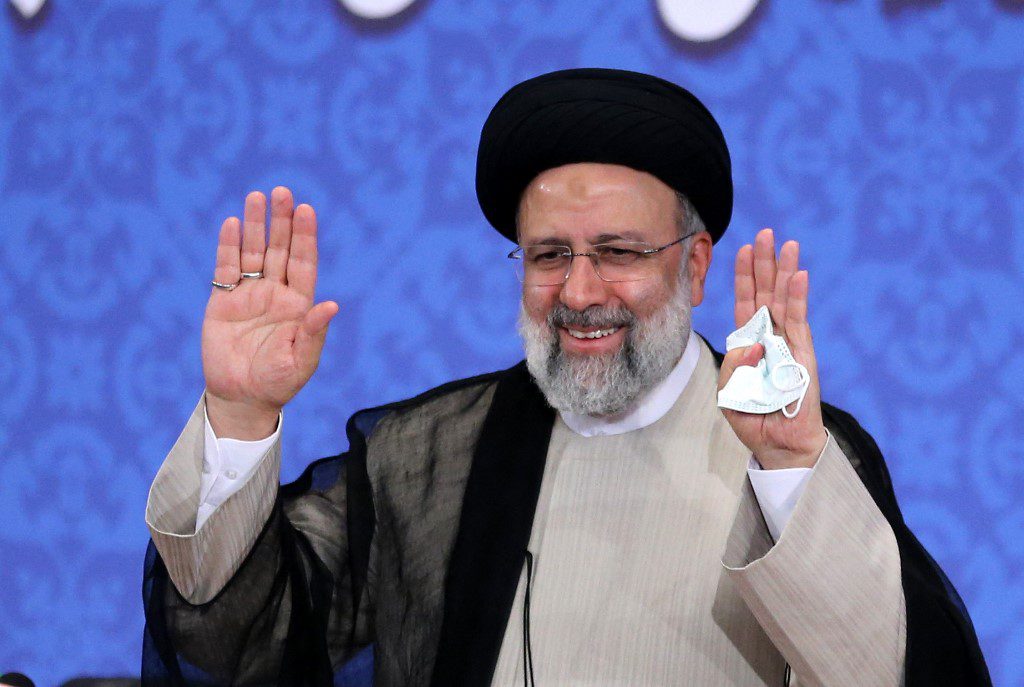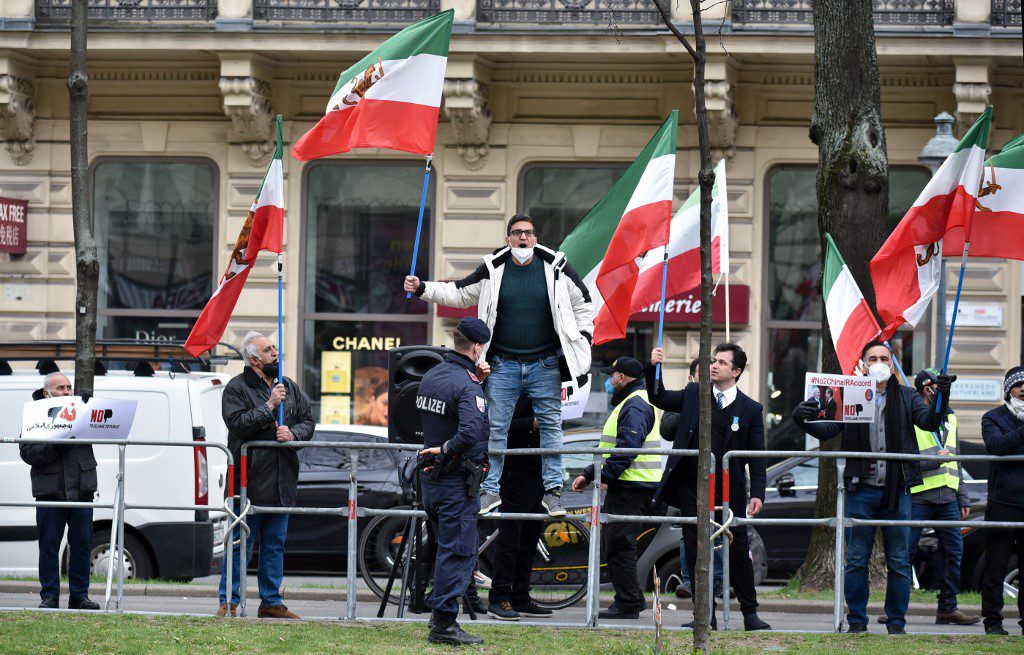
Sophia Akram
Last month, Ebrahim Raisi won the much-watched Iranian presidential elections and will take up office in August this year. While he built his campaign on stamping out corruption and the debilitated economy, which plays on the minds of most Iranians, it is the revival of the nuclear deal and human rights that will raise the interest of the international community.
Raisi’s mandate comes from 62% of the vote last month. However, despite the unambiguous victory, the result still fails to represent Iran’s mass population, as the June 2021 elections saw the lowest poll turnout in the country’s post-revolution history. The poll was marked by calls for boycott and a raft of spoiled ballot papers by an electorate disillusioned by the poor performance of reformists they see as failing to implement adequate social reform and robust economic policy.
Raisi’s appointment was also assisted by the strategic disqualification of candidates by the Guardian Council, which eliminated any serious challenge to the so-called hardliner who has drawn ire for his past involvement in some of the worst human rights abuses to have marred Iran.
Considered close to the Supreme Leader Ayatollah Ali Khamenei, Raisi is the former head of the judiciary and is also tipped to succeed Kahamanei after he dies. Like the 82-year-old Ayatollah, Raisi’s black turban indicates he is a descendent of the Prophet Muhammad.
Many regard him as a hardliner like Mahmoud Ahmedinejad, Iran’s leader before Rouhani’s two-term rule in office from 2013. According to Ali Hashem, writing in Al-Monitor, however, Raisi was never a Principlist, nor a Reformist, the main two political camps in Iran. Rather Raisi will seek to pave a new “political current” in the country. Either way, he must deliver on bringing greater prosperity to the Iranian people to gain any kind of legitimacy among them.

After former US President Trump withdrew from the Joint Cooperation Plan of Action (JCPOA), also known as the Iran/Nuclear deal, the country’s GDP immediately contracted, dipping 6.8 percent over 2019/2020. The World Bank’s potentially conservative estimate put the poverty rate at 14 percent before the pandemic, now likely much higher since lockdown forced many to lose incomes and due to the rising cost of living in Iran.
Raisi’s 17.9 million, likely conservative, voters, are looking to the incoming leader to deliver on his promises to eliminate corruption linked in part to the economic woes of the country.
That means alleviation of sanctions and committing to the Iran nuclear deal, for which negotiations are currently underway in Vienna.
“Raisi will stick to the nuclear deal and try to uphold it”, says Kourosh Ziabari, Asia Times correspondent in Iran, an understanding he says is held by many Iran experts.
“Though I should admit that his foreign policy team, about whose makeup some rumors have been whispered in the recent days, is spectacularly uninformed about the details of the JCPOA, and some pundits venture to claim they haven’t even read the full 159 pages of the agreement.
“If the lame-duck Rouhani administration is able to resurrect the deal and pull off the US compliance before it is replaced by the Raisi administration that will be inaugurated in early August, things will be much easier, and Raisi will rush to reap the economic dividends of a done deal without actually playing a role in bringing it round”.
That leaves a relatively small window for negotiations to take place, the risk being that protracted talks until Raisi takes office will bring challenges.
“First the Raisi foreign policy squad is not as dexterous and familiar with the nitty-gritty of international diplomacy and negotiation skills as the foreign ministry that was spearheaded by Javad Zarif and also because the Raisi administration will be taking a hard line in the talks without being willing to make the compromises that Rouhani and his diplomats are ready to offer”, says Ziabari.
While Raisi shows some reticence in engaging with the West, he recognises that restoration of the deal would be more beneficial than “infinite nuclear brinkmanship”, adds Ziabari.
Economic reform, however, will also ultimately depend on political reform to help alleviate injustices linked to poverty.
“Considering his background as a judge, whose career spanning several decades was spent in the judiciary, it is widely expected that his efforts in the government will be concentrated on stamping out bureaucratic hurdles that slow down economic productivity and compound the procurement of social services”, says Ziabari.
The “rigged elections”, however, somewhat undermines any credibility the regime has in stamping out corruption, writes Marwan Bishara, senior policy analyst at Al Jazeera.
Raisi’s lack of experience could also cast a shadow over his ability to handle the country’s cash-strapped economy, according to Ziabari.
“During the campaign season, he didn’t lay out a transparent economic agenda and many Iranians are still making speculations about his prospective performance”, he says, adding he is unlikely to encourage foreign investment into the country’s energy or infrastructure industries.
The idea of a ‘resistance economy’ is popular among Iran’s conservative elements to make the country less dependent on international players. As a presidential candidate, Raisi called for ‘the activation of a resistance economy as the only way to end poverty and deprivation in the country’ and promised to create cash subsidies and employment to those ends.
Raisi’s track record contravening international human rights norms also puts him at odds with the international community. There have been calls from rights groups and the UN for accountability for Raisi’s involvement in the mass killing of Iranian prisoners in 1988 where more than 300 people were said to have been massacred.
UN’s special rapporteur on human rights in Iran, Javaid Rehman, recently told Reuters he would share testimonies and evidence he collected to inform investigations.
Raisi acted as a prosecutor and ordered the executions of members of an opposition group and others considered leftists, communists and apostates. In 2018, he referred to the killings as one of the proudest moments of the system.
Human rights activists are concerned evidence in the form of mass graves are being destroyed to cover up the crime, while the testimonies of relatives distorted.
Rehman told the media outlet the probe would help families move forward.
Zabiari also notes that the judiciary, which fell under his supervision in the last few years, has been responsible for what many have called arbitrary detentions and unfair sentences, including executions.
In that respect, a further deterioration in Iran’s human rights record could be expected with further curbs on civil society, the media and use of social media and the internet, says Ziabari, as well as crackdowns on the government’s opposers:
“Now that all branches of the government are hegemonised by the hardliners and they aren’t concerned about sharing power with the more progressive and pro-reform forces, further crackdowns on the social movements, youths, activists, students, women, ethnic minorities and other vulnerable communities will be on the horizon”


